The SQL CAT team identified three common patterns for customers who were actively testing and deploying SQL Server 2012 high availability and disaster recovery solutions. One pattern is to use a multi-site Failover Cluster Instance (FCI) for local high availability and disaster recovery. A second pattern is to use AlwaysOn Availability Groups (AG) for local high availability and disaster recovery. The third pattern involves using an AlwaysOn FCI for local high availability and AlwaysOn AGs for disaster recovery.
The plan, which as of today is now complete, was to write an architecture guide for each design pattern:
- The first paper covering the multi-site FCI pattern was written by Mike Weiner, Sanjay Mishra and Min He –> “SQL Server 2012 AlwaysOn: Multisite Failover Cluster Instance”
- The second paper covering the AGs for HA & DR design pattern was published June 23rd, and was co-authored by Sanjay Mishra and me –> “AlwaysOn Architecture Guide: Building a High Availability and Disaster Recovery Solution by Using AlwaysOn Availability Groups”
- And today the third design pattern paper, covering FCIs for local HA and AGs for DR, also co-authored by Sanjay Mishra and me, can be downloaded here –> “AlwaysOn Architecture Guide: Building a High Availability and Disaster Recovery Solution by Using Failover Cluster Instances and Availability Groups”
As with the last paper, a big thank you is in order to Sanjay Mishra (Microsoft) for inviting me to participate and to Glenn Minch (Microsoft) for keeping things rolling and managing all the moving parts (and also providing excellent feedback).
As with the AG for HA/DR paper, the technical reviewers provided invaluable feedback and perspectives – which is absolutely critical for a topic like this. So a big thanks to the 13 reviewers – including David P. Smith (ServiceU), Brent Ozar (Brent Ozar PLF), Min He (Microsoft), Juergen Thomas (Microsoft), Mike Weiner (Microsoft), Prem Mehra (Microsoft), Glenn Berry (SQLskills.com), Alexi Khalyako (Microsoft), Charles Mathews (Microsoft), Amitabh Tamhane (Microsoft), Chuck Heinzelman (Microsoft), Gianluca Hotz (SolidQ) and Michael Steineke (Edgenet).
As an aside – one change in approach you may notice with these papers is that they are not hundreds of pages long. The idea was to define the scope and keep things very focused. If a related issue or concept warranted its own 30 pages (or even its own 10 pages), ideally that topic will soon get its own coverage in some way/shape/form (doesn’t have to be a paper, for example).
